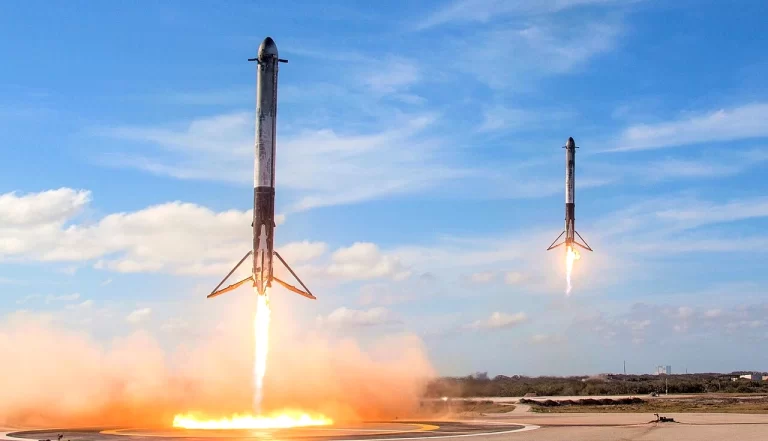As the global demand for sustainable and ethical food sources continues to rise, companies are exploring innovative alternatives to traditional meat production. One such alternative is lab-grown meat, a product of cellular agriculture that promises to revolutionize the food industry by offering meat without the environmental and ethical concerns associated with conventional livestock farming. This case study explores Tyson Foods’ investment in lab-grown meat alternatives, examining the company’s strategic motivations, investment approach, challenges faced, and the potential impact on the food industry.
Overview of Tyson Foods
Tyson Foods, Inc., founded in 1935, is one of the world’s largest food companies and a recognized leader in protein production. The company operates across a broad spectrum of the meat market, including chicken, beef, pork, and prepared foods. With a focus on innovation and sustainability, Tyson Foods has been diversifying its portfolio to include plant-based and lab-grown meat products, aiming to cater to the evolving preferences of consumers seeking healthier and more sustainable food options.
The Rise of Lab-Grown Meat
Lab-grown meat, also known as cultured meat, is produced by cultivating animal cells in a controlled environment, eliminating the need to raise and slaughter animals. This technology has gained significant attention due to its potential to address critical issues such as environmental sustainability, animal welfare, and food security. Unlike traditional meat production, lab-grown meat uses fewer resources, reduces greenhouse gas emissions, and minimizes land and water use.
Strategic Investment by Tyson Foods
In 2018, Tyson Foods made a strategic move into the lab-grown meat sector by investing in Memphis Meats, a pioneering company in the cellular agriculture space. This investment marked Tyson’s commitment to exploring alternative protein sources beyond its traditional product lines. By investing in lab-grown meat, Tyson aimed to position itself at the forefront of the evolving food landscape and capitalize on the growing consumer demand for sustainable protein options.
Tyson’s investment strategy included not only financial support but also leveraging its extensive expertise in food production, supply chain management, and market distribution to help accelerate the commercialization of lab-grown meat products. The company’s approach involved a combination of direct investments and partnerships with startups specializing in cultured meat, reflecting its broader strategy of diversification and innovation.
Proportion of Tyson Foods Investments in Lab-Grown Meat Companies
Tyson Foods is strategically investing in lab-grown meat as part of its commitment to sustainable protein solutions. By supporting companies like Future Meat Technologies and Memphis Meats, Tyson is leveraging innovation to reduce the environmental footprint of meat production. These investments not only position Tyson at the forefront of alternative protein development but also align with global trends towards more ethical and sustainable food sources. As production costs for lab-grown meat continue to decline, Tyson Foods is set to play a pivotal role in bringing these products to mainstream markets, potentially transforming the future of meat consumption.
In its strategic investment approach, Tyson Foods also has focused on products like artificial chicken leveraging the growing demand for sustainable and ethical poultry alternatives to strengthen its position in the alternative protein market.
Challenges Faced
While the potential of lab-grown meat is promising, Tyson Foods and the industry as a whole face several challenges:
- High Production Costs: The production of lab-grown meat is currently expensive due to the cost of growth media, bioreactors, and scaling up production processes. Reducing these costs is essential for making lab-grown meat competitive with conventional meat products.
- Regulatory Hurdles: The regulatory landscape for lab-grown meat is still evolving, with different countries adopting varying approaches to the approval and labeling of cultured meat products. Navigating these regulations is a critical step for Tyson Foods in bringing lab-grown meat to market.
- Consumer Acceptance: Although lab-grown meat is gaining attention, consumer acceptance remains a challenge. Educating consumers about the benefits of cultured meat and addressing concerns about taste, safety, and naturalness are crucial for widespread adoption.
- Scale and Commercialization: Scaling up production to meet market demand while maintaining product quality and consistency is a complex challenge. Tyson Foods is investing in research and development to overcome these technical barriers and achieve efficient, large-scale production.
Potential Impact on the Food Industry
Tyson Foods’ investment in lab-grown meat alternatives has the potential to significantly impact the food industry by driving innovation and setting new standards for sustainable protein production. As one of the largest meat producers globally, Tyson’s involvement lends credibility to the lab-grown meat sector and could accelerate its acceptance among consumers and investors.
The successful commercialization of lab-grown meat could reduce the environmental footprint of meat production, offering a solution to some of the most pressing challenges in agriculture, such as deforestation, biodiversity loss, and greenhouse gas emissions. Furthermore, lab-grown meat could enhance food security by providing a reliable and scalable protein source that is less susceptible to the fluctuations and risks associated with traditional livestock farming.
Future Outlook
Looking ahead, Tyson Foods aims to continue its investment and innovation in lab-grown meat as part of its broader sustainability and growth strategy. The company is exploring opportunities to expand its product offerings and bring lab-grown meat to a broader audience. As technology advances and production costs decrease, lab-grown meat is expected to become a more accessible and appealing option for consumers worldwide.
Tyson Foods’ commitment to lab-grown meat alternatives underscores its recognition of the shifting dynamics in the food industry and its willingness to adapt to meet changing consumer demands. By investing in lab-grown meat, Tyson is not only diversifying its product portfolio but also contributing to the development of a more sustainable and ethical food system.
Conclusion
Tyson Foods’ investment in lab-grown meat alternatives represents a strategic move to align with emerging trends in the food industry and address the growing consumer demand for sustainable protein sources. While challenges remain, the company’s proactive approach to innovation and sustainability positions it well to capitalize on the potential of lab-grown meat. As the sector continues to evolve, Tyson Foods is poised to play a key role in shaping the future of food production, paving the way for a new era of protein consumption that is both environmentally responsible and ethically sound.
Key Insights
- Tyson Foods’ Strategy: Tyson’s investment strategy in lab-grown meat involves financial support, partnerships, and leveraging its expertise in production and distribution.
- Challenges: High production costs, regulatory hurdles, consumer acceptance, and scalability are key challenges.
- Industry Impact: Lab-grown meat has the potential to reduce environmental impact and improve food security.
- Future Outlook: Continued investment and innovation are expected to make lab-grown meat a mainstream option.




